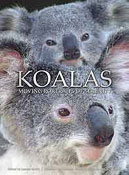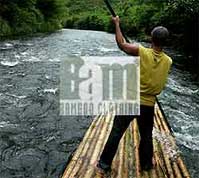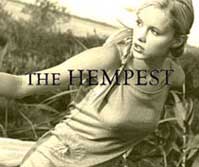Katrina turns NOAA shrimping study into disaster-related research
Ongoing research on the livelihood systems of fishing communities in Louisiana and Texas through NOAA Fisheries grants turned into disaster-related research when Western Illinois University socio-cultural researcher Heather McIlvaine-Newsad visited Grand Isle, LA in Summer 2006, one year after Hurricane Katrina.
 A Summer 2006 trip to Louisiana’s deep south coastal Grand Isle was an eye-opening experience for Western Illinois University senior John Long (Earlville, IL), a sociology major and anthropology minor, as well as for his teacher and experienced socio-cultural researcher Heather McIlvaine-Newsad, an associate anthropology professor.
A Summer 2006 trip to Louisiana’s deep south coastal Grand Isle was an eye-opening experience for Western Illinois University senior John Long (Earlville, IL), a sociology major and anthropology minor, as well as for his teacher and experienced socio-cultural researcher Heather McIlvaine-Newsad, an associate anthropology professor.
McIlvaine-Newsad had been conducting ongoing research on the livelihood systems of fishing communities through two National Oceanic and Atmospheric Administration (NOAA) Fisheries grants: one, a $2,500 grant (2004) titled “Livelihood Strategies of Fishers and Shrimpers on Grand Isle, Louisiana;” the other, a $5,000 grant (2005) titled “Socio-economic and Cultural Impacts of the Decline of the Shrimping Industry in South Texas.”
Then Hurricane Katrina ran rampage through the Gulf Coast Aug. 29, 2005.
 “As an anthropologist I am interested in why people do what they do,” McIlvaine-Newsad said. “This disaster-related research looks at how people’s relationship to their physical environment has changed as a result of Katrina. More specifically, I am interested in whether people are losing or gaining knowledge about their environment and how they are changing their livelihood strategies in order to adapt to huge environmental changes, like hurricanes.
“As an anthropologist I am interested in why people do what they do,” McIlvaine-Newsad said. “This disaster-related research looks at how people’s relationship to their physical environment has changed as a result of Katrina. More specifically, I am interested in whether people are losing or gaining knowledge about their environment and how they are changing their livelihood strategies in order to adapt to huge environmental changes, like hurricanes.
“For the NOAA studies, we were looking at fishing communities in general and how they responded culturally, economically and socially to the changes NOAA regulations imposed on them,” she added. “After Katrina all you heard about was New Orleans. But a significant portion of Louisiana’s economy is based on fishing and shrimping, which takes place in rural areas. Just as various regions of New Orleans are recovering at different rates, so too are diverse fishing communities recovering differently. It is difficult to see the variation when you don’t see it firsthand. That is one reason anthropological field research is so important. You see firsthand how people are coping with change.”
Researcher and student interviewed individuals from the Grand Isle, the last barrier island at the mouth of the Mississippi River which helps protect the city of New Orleans from hurricanes. McIlvaine-Newsad then continued her research with NOAA anthropologist Palma Ingles in the communities of Venice and Empire. All three communities suffered tremendous damage from Hurricane Katrina, she said.
Inhabitants of Grand Isle are primarily Cajun and have been shrimping since the 1800s. Shrimpers in Venice and Empire are largely comprised of Cambodians and Vietnamese immigrants who have been shrimping in the area for the past 20 to 30 years. The cultural differences among the communities, their social network systems and their familiarity with their physical environment all influence how they shrimp and how they rebuild after the storm, McIlvaine-Newsad explained.
“We were in Louisiana, but in some areas it looked as if we had stumbled into a developing country where poverty is a cultural norm,” said Long, who assisted in the research by conducting and transcribing field interviews, coding data and mapping the area. “The poor are without a voice. They need anthropologists to give them that voice.
“Participating in the research was amazing,” added Long, who received grants from the College of Arts and Sciences ($300) and the sociology and anthropology department ($75) to help defray his personal expenses. “Not only was I able to be involved in a project that was unique as the post-Katrina fishery research, but also to become entrenched in this fading way of life (shrimping) and possibly contribute to the greater body of knowledge which could, hopefully, help to save it from virtual extinction.”
Although the hurricane created a surge in the natural shrimping environment, Grand Isle, Venice and Empire were annihilated. Homes are gone and residents still wait for temporary living trailers from FEMA more than one year after Katrina. Fishing boats were destroyed and other vital resources were also depleted such as dock space and ice machines. Shrimp processing plants have closed, and clients are relying more heavily than ever on farmed imported shrimp from other countries, McIlvaine-Newsad said.
“I think it’s one of the best experiences for students to have,” McIlvaine-Newsad said. “You can learn in the classroom, but to actually go out and do the research is invaluable.”
Long agreed.
“I learned not only the practical application techniques of anthropological methods; but perhaps more importantly, I learned that anthropology can assist in policy formation that can save entire economic and social systems from destruction,” he said.
McIlvaine-Newsad, who is also a research fellow for the Illinois Institute for Rural Affairs at Western, received her Ph.D. from the University of Florida (2000) in applied cultural anthropology with a focus on gender, agriculture and natural resource management strategies in Ecuador. She earned an M.A. in International Development from Ohio University. She followed her B.A. in German from Denison University serving as a Peace Corps Volunteer in the Dominican Republic. She speaks fluent German and Spanish.
E-mail Dr. McIlvaine-Newsad at H-McIlvaine-newsad@wiu.edu or contact the WIU University Relations Office for assistance: telephone 309-298-1993; email Bonnie Barker, BL-BL-Barker@wiu.edu and Darcie Shinberger, DR-Shinberger@wiu.edu.
Keywords:: KATRINA, NOAA, SHRIMP, RESEARCH, WESTERN ILLINOIS, WESTERN ILLINOIS UNIVERSITY, LOUISIANA, HURRICANE, ANTHROPOLOGY, SOCIOLOGY, NEW ORLEANS, GRAND ISLE
 A Summer 2006 trip to Louisiana’s deep south coastal Grand Isle was an eye-opening experience for Western Illinois University senior John Long (Earlville, IL), a sociology major and anthropology minor, as well as for his teacher and experienced socio-cultural researcher Heather McIlvaine-Newsad, an associate anthropology professor.
A Summer 2006 trip to Louisiana’s deep south coastal Grand Isle was an eye-opening experience for Western Illinois University senior John Long (Earlville, IL), a sociology major and anthropology minor, as well as for his teacher and experienced socio-cultural researcher Heather McIlvaine-Newsad, an associate anthropology professor.McIlvaine-Newsad had been conducting ongoing research on the livelihood systems of fishing communities through two National Oceanic and Atmospheric Administration (NOAA) Fisheries grants: one, a $2,500 grant (2004) titled “Livelihood Strategies of Fishers and Shrimpers on Grand Isle, Louisiana;” the other, a $5,000 grant (2005) titled “Socio-economic and Cultural Impacts of the Decline of the Shrimping Industry in South Texas.”
Then Hurricane Katrina ran rampage through the Gulf Coast Aug. 29, 2005.
 “As an anthropologist I am interested in why people do what they do,” McIlvaine-Newsad said. “This disaster-related research looks at how people’s relationship to their physical environment has changed as a result of Katrina. More specifically, I am interested in whether people are losing or gaining knowledge about their environment and how they are changing their livelihood strategies in order to adapt to huge environmental changes, like hurricanes.
“As an anthropologist I am interested in why people do what they do,” McIlvaine-Newsad said. “This disaster-related research looks at how people’s relationship to their physical environment has changed as a result of Katrina. More specifically, I am interested in whether people are losing or gaining knowledge about their environment and how they are changing their livelihood strategies in order to adapt to huge environmental changes, like hurricanes.“For the NOAA studies, we were looking at fishing communities in general and how they responded culturally, economically and socially to the changes NOAA regulations imposed on them,” she added. “After Katrina all you heard about was New Orleans. But a significant portion of Louisiana’s economy is based on fishing and shrimping, which takes place in rural areas. Just as various regions of New Orleans are recovering at different rates, so too are diverse fishing communities recovering differently. It is difficult to see the variation when you don’t see it firsthand. That is one reason anthropological field research is so important. You see firsthand how people are coping with change.”
Researcher and student interviewed individuals from the Grand Isle, the last barrier island at the mouth of the Mississippi River which helps protect the city of New Orleans from hurricanes. McIlvaine-Newsad then continued her research with NOAA anthropologist Palma Ingles in the communities of Venice and Empire. All three communities suffered tremendous damage from Hurricane Katrina, she said.
Inhabitants of Grand Isle are primarily Cajun and have been shrimping since the 1800s. Shrimpers in Venice and Empire are largely comprised of Cambodians and Vietnamese immigrants who have been shrimping in the area for the past 20 to 30 years. The cultural differences among the communities, their social network systems and their familiarity with their physical environment all influence how they shrimp and how they rebuild after the storm, McIlvaine-Newsad explained.
“We were in Louisiana, but in some areas it looked as if we had stumbled into a developing country where poverty is a cultural norm,” said Long, who assisted in the research by conducting and transcribing field interviews, coding data and mapping the area. “The poor are without a voice. They need anthropologists to give them that voice.
“Participating in the research was amazing,” added Long, who received grants from the College of Arts and Sciences ($300) and the sociology and anthropology department ($75) to help defray his personal expenses. “Not only was I able to be involved in a project that was unique as the post-Katrina fishery research, but also to become entrenched in this fading way of life (shrimping) and possibly contribute to the greater body of knowledge which could, hopefully, help to save it from virtual extinction.”
Although the hurricane created a surge in the natural shrimping environment, Grand Isle, Venice and Empire were annihilated. Homes are gone and residents still wait for temporary living trailers from FEMA more than one year after Katrina. Fishing boats were destroyed and other vital resources were also depleted such as dock space and ice machines. Shrimp processing plants have closed, and clients are relying more heavily than ever on farmed imported shrimp from other countries, McIlvaine-Newsad said.
“I think it’s one of the best experiences for students to have,” McIlvaine-Newsad said. “You can learn in the classroom, but to actually go out and do the research is invaluable.”
Long agreed.
“I learned not only the practical application techniques of anthropological methods; but perhaps more importantly, I learned that anthropology can assist in policy formation that can save entire economic and social systems from destruction,” he said.
McIlvaine-Newsad, who is also a research fellow for the Illinois Institute for Rural Affairs at Western, received her Ph.D. from the University of Florida (2000) in applied cultural anthropology with a focus on gender, agriculture and natural resource management strategies in Ecuador. She earned an M.A. in International Development from Ohio University. She followed her B.A. in German from Denison University serving as a Peace Corps Volunteer in the Dominican Republic. She speaks fluent German and Spanish.
E-mail Dr. McIlvaine-Newsad at H-McIlvaine-newsad@wiu.edu or contact the WIU University Relations Office for assistance: telephone 309-298-1993; email Bonnie Barker, BL-BL-Barker@wiu.edu and Darcie Shinberger, DR-Shinberger@wiu.edu.
Keywords:: KATRINA, NOAA, SHRIMP, RESEARCH, WESTERN ILLINOIS, WESTERN ILLINOIS UNIVERSITY, LOUISIANA, HURRICANE, ANTHROPOLOGY, SOCIOLOGY, NEW ORLEANS, GRAND ISLE



12:18 PM









<< Home